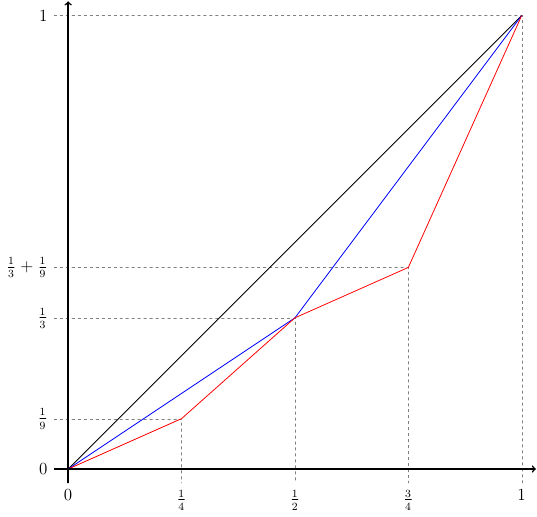Suppose one has a finite number of distances $d_1,\ldots,d_k$ on the Euclidean plane all of which metricize the usual Euclidean topology.
Define for each pair of points $x$ and $y$ in the plane $$d(x,y) = \inf\left\lbrace d_{i_1}(x_0,x_1) + \cdots d_{i_l}(x_{l-1},x_l) \right\rbrace$$ where the infimum is taken over all finite sequences with $x_0 = x,x_1,\ldots,x_l = y$ and all possible choices of $i_1,\ldots, i_l$.
Question: Is it possible for $d(x,y)$ to be $0$ for a pair of distinct points $x \neq y$?
Also, I'm interested in the same question replacing $\mathbb{R}^2$ by an arbitrary Polish space.

